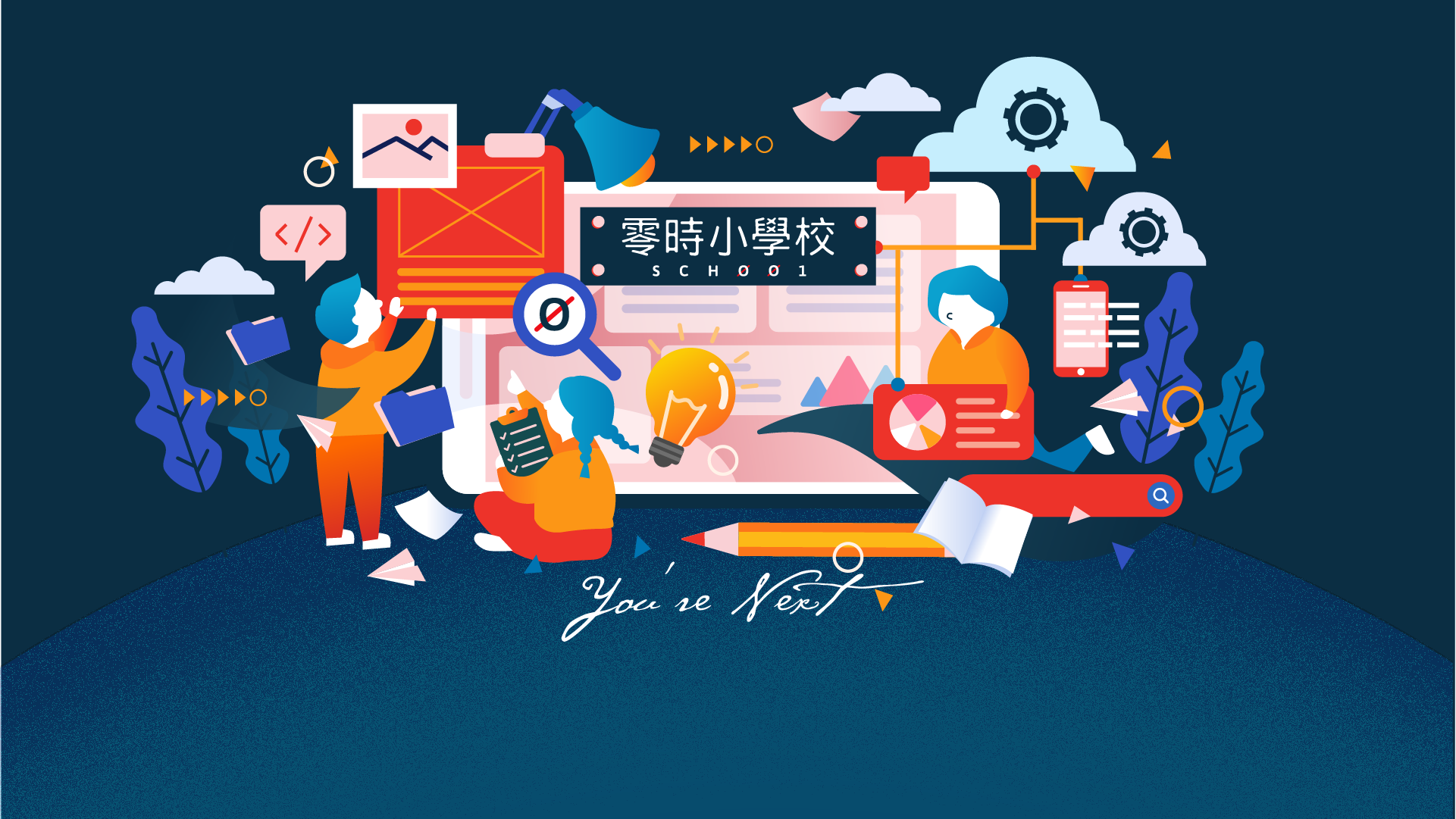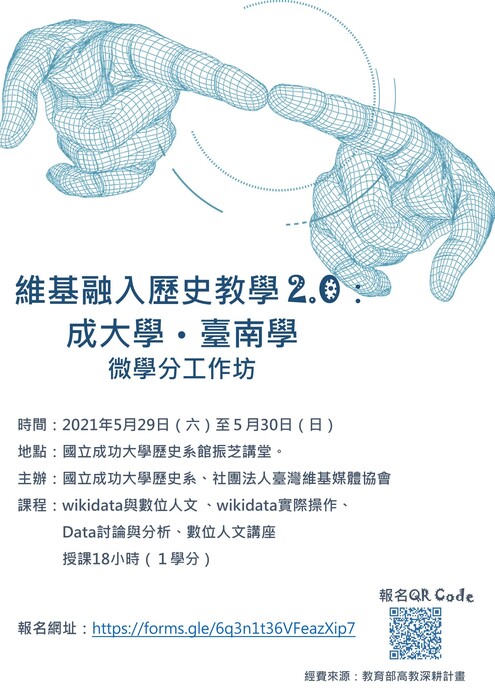#edu
2021-04-01
Hugh Lee
08:49:52
@yhlscallop has joined the channel
2021-04-02
요송
13:21:04
@vincentkuo0311 has joined the channel
bess
17:05:49
CommonWealth Magazine
The pandemic has forced millions of students globally to stay home. How the g0v jothon team in g0v collaborated with civic tech forces across East Asia to make strides towards improving education.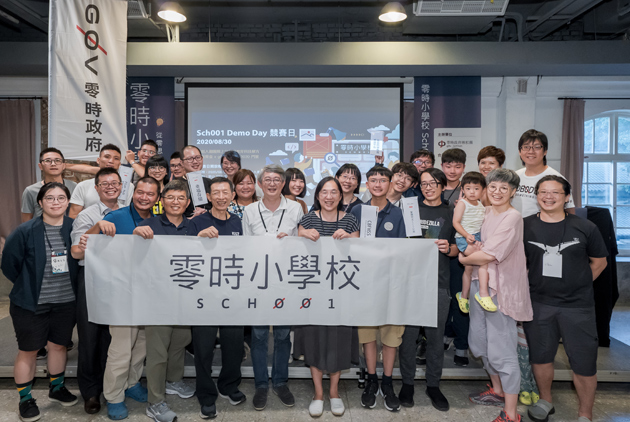
- 👏3
 2
2
bess
17:08:42
btw @felixtypingmonkey 上一篇的照片換好了~
https://english.cw.com.tw/article/article.action?id=2930
https://english.cw.com.tw/article/article.action?id=2930
CommonWealth Magazine
COVID-19 has increased the physical space between people, but it has also given people the space to reconsider the meaning of interaction. How did g0v jothon create an online hackathon for over 100 people using existing digital collaboration tools?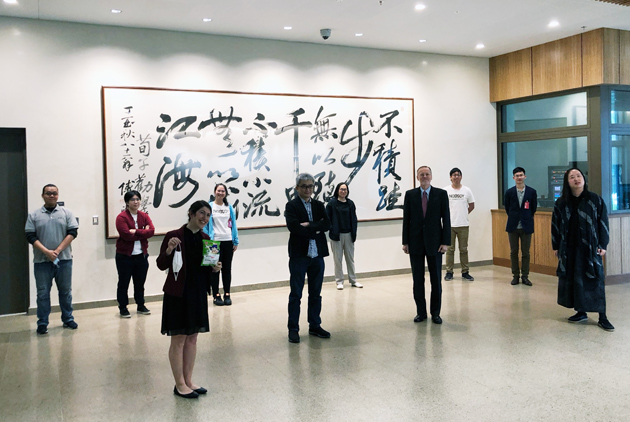
- 👏3
- ❤️2
 2
2
2021-04-05
zhang CC
10:33:05
@zhangc546 has joined the channel
2021-04-06
bess
14:24:08
嗨我們下週三會在台南小松喔~
https://g0v.hackmd.io/@kiang/tainan-016
https://g0v.hackmd.io/@kiang/tainan-016
HackMD
台南小松 016 === ###### tags: `台南小松` 時間: 2021-04-14 (三) 19:00-21:00 地點: 好想工作室(東區北門路二段16號 L2A, <https://ww>
delightfullychaotic
2021-04-06 22:40:03
先問想要哪家酒吧
bess
2021-04-06 22:41:29
Moon Rock!
bess
2021-04-06 22:42:43
我會不會回答太快 🙊
delightfullychaotic
2021-04-08 21:52:08
那你慢慢想想要訂多少人位 我來訂
bess
2021-04-08 21:54:15
XD 4/14 應該無法,要準備隔天的東東
julialiu
22:01:57
@julialiu2223 has joined the channel
delightfullychaotic
22:40:03
先問想要哪家酒吧
bess
22:41:29
Moon Rock!
bess
22:42:43
我會不會回答太快 🙊
2021-04-07
hewdokey
09:47:34
@hewdokey has joined the channel
2021-04-08
delightfullychaotic
21:52:08
那你慢慢想想要訂多少人位 我來訂
bess
21:54:15
XD 4/14 應該無法,要準備隔天的東東
2021-04-09
John Huang
07:51:48
Replied to a thread: 2021-03-12 19:50:06
HackMD
# 零時小學校 學生時數系統 共筆 | Sch001 Learning Certification System 零時小學校今年會舉辦很多活動,包括小松和營隊,為了參與者的參與、貢獻時間可以被具
 3
3 3
3- 🤩2
circles0309
12:54:51
@circles0309 has joined the channel
John Huang
14:39:55
主要是這兩個要先有
• 軟體中文名稱:(未定)
• 軟體英文名稱:(未定)
不然之後改名會~超麻煩
• 軟體中文名稱:(未定)
• 軟體英文名稱:(未定)
不然之後改名會~超麻煩
bess
18:09:03
真是太令人驚奇了(?)
liao.jason2
20:00:15
請問要怎麼參與這個專案的開發呢?
johnson
20:33:08
@chnejohnson has joined the channel
johnson
20:37:06
獎勵時數的方式有沒有考慮用代幣的形式呢
2021-04-10
John Huang
00:32:48
John Huang
00:33:19
johnson
08:31:38
@little78926 了解,我對這個黑客松系統滿有興趣的~
感覺目前規劃是朝「時數」的方式去紀錄成就。另外我也滿好奇幸福存摺,那是還在開發中的專案嗎?
這邊說一下我對「量化單位」的看法,幸福存摺似乎是用「點數」的方式,點數的好處是可以依照時間多寡來獎勵,也可以依照貢獻的困難度來獎勵。另外一個好處是,點數適合拿來交換商品。
採用「時數」的話就是以時間來衡量,就不能用作交換,而是個人時數的累計,累計多少小時可以獲得獎章、獎品等等成就解鎖的方式。缺點是無法衡量貢獻的難易度。
感覺目前規劃是朝「時數」的方式去紀錄成就。另外我也滿好奇幸福存摺,那是還在開發中的專案嗎?
這邊說一下我對「量化單位」的看法,幸福存摺似乎是用「點數」的方式,點數的好處是可以依照時間多寡來獎勵,也可以依照貢獻的困難度來獎勵。另外一個好處是,點數適合拿來交換商品。
採用「時數」的話就是以時間來衡量,就不能用作交換,而是個人時數的累計,累計多少小時可以獲得獎章、獎品等等成就解鎖的方式。缺點是無法衡量貢獻的難易度。
John Huang
08:41:52
幸福存摺已經開發得差不多,也已經投入使用
請參考: https://www.happinessbankbook.org/
Github: https://github.com/chunyenHuang/piggy-bank-of-happiness
我同意你對於量化的觀點,不過時數已經廣泛使用類似的場合,例如社區服務。且這個系統沒有規劃要來任何交換或是實質獎勵。
請參考: https://www.happinessbankbook.org/
Github: https://github.com/chunyenHuang/piggy-bank-of-happiness
我同意你對於量化的觀點,不過時數已經廣泛使用類似的場合,例如社區服務。且這個系統沒有規劃要來任何交換或是實質獎勵。
John Huang
10:27:32
@chnejohnson 我把你的觀點寫在討論裡面(slack不久就會消失) https://g0v.hackmd.io/vJ7_irbLRQGMYF29C9mZGA?view
johnson
11:28:41
Ok 感謝~
2021-04-13
Auber
12:39:07
@comm608336005 has joined the channel
2021-04-14
singing
11:30:13
@singing has joined the channel
bess
13:51:35
HackMD
台南小松 016 === ###### tags: `台南小松` 時間: 2021-04-14 (三) 19:00-21:00 地點: 好想工作室(東區北門路二段16號 L2A, <https://ww>
tnstiger
2021-04-14 16:26:47
那我今晚也要去
tnstiger
16:26:47
那我今晚也要去
2021-04-15
johnson
11:54:58
@little78926 請問黑客松系統目前有開源專案能參與嗎
John Huang
11:56:06
還沒開工唷 我在等@besslee 他們決定一下專案名稱等等。
請參考
https://g0v.hackmd.io/vJ7_irbLRQGMYF29C9mZGA?view#%E8%A6%8F%E5%8A%83
請參考
https://g0v.hackmd.io/vJ7_irbLRQGMYF29C9mZGA?view#%E8%A6%8F%E5%8A%83
2021-04-16
unknow
18:47:51
@unknow has joined the channel
2021-04-19
chewei 哲瑋
18:03:33
演講訊息分享,題目:學校組織不平等:高中學校如何回應新課綱與學習歷程檔案?
https://www.facebook.com/ntusociology/photos/a.437822609705220/2076832165804248/
https://www.facebook.com/ntusociology/photos/a.437822609705220/2076832165804248/
bess
19:00:48
零時小學校 2021 版網站上線,之後我們想要做網站翻譯,先翻成英文,日本、韓國社群朋友會再協助翻成日文跟韓文,想問有沒有人可以幫忙翻成英文?
https://sch001.g0v.tw/
https://sch001.g0v.tw/
 4
4
bess
2021-04-21 18:10:01
我試著把首頁的肉挖出來了 XD @sean076
bess
2021-04-23 19:42:54
bess
2021-04-23 19:43:59
與 Code for Japan 合作翻譯的共筆:
https://g0v.hackmd.io/@jothon/B1xSsQxPd
https://g0v.hackmd.io/@jothon/B1xSsQxPd
julialiu
2021-04-28 13:19:03
你需要我幫忙翻譯嗎?
bess
2021-04-28 13:20:07
@julialiu2223 太好了當然需要 XD 等我們把中文的部分搞定
julialiu
2021-04-28 22:11:19
恩恩可以tag我噢!不用客氣,因為我幾乎沒看到這串哈哈
bess
2021-05-03 16:26:14
Code for Japan 翻譯計畫長出新坑了:g0v 宣言日文版!
https://hackmd.io/@kaizumaki/SklLGQt5wu
https://hackmd.io/@kaizumaki/SklLGQt5wu
2021-04-21
Eugene
04:01:50
@eugene2528 has joined the channel
bess
15:01:58
零時小學校預計會在 5/8 有線上講座,邀請 g0ver 來跟零時小學校的同學聊天,目前正在想講座名稱,歡迎一起來共筆或許願想邀請的人 XD 預計應該會在下週二確認名稱之後開始宣傳~
https://g0v.hackmd.io/@jothon/HyLvjB6Uu
https://g0v.hackmd.io/@jothon/HyLvjB6Uu
HackMD
# [零時小學校] 線上講座籌備共筆 ## 需要協作 QQ ### 線上講座名稱發想 - [線上學伴聊天室] 1 號學伴:g0v 小幫手大神 ronnywang [name=bess] -
- 👍5
 1
1 1
1
bess
2021-04-21 15:02:19
@brianchou452 @terry.f.wang
bess
2021-04-28 17:05:28
@felixtypingmonkey
bess
15:02:19
@brianchou452 @terry.f.wang
mglee
15:57:33
@mglee has joined the channel
Ted 顥天
19:36:32
@ted.lu.tw has joined the channel
沅儒
23:54:14
@leon_lin has joined the channel
2021-04-22
Ruth
04:08:55
@ruth.wetters has joined the channel
celine.nauer
22:49:42
@celine.nauer has joined the channel
2021-04-23
李至曜
09:29:55
@dd360870 has joined the channel
bess
17:17:21
`4/15 Code for Sch001ing:g0v 源力增能營第二場(崑山科技大學場)`
所有營隊紀錄(文字、錄影與照片)都在共筆上囉,這次的營隊摘要也一起放在上面了
https://g0v.hackmd.io/@jothon/Sch001_20210415
所有營隊紀錄(文字、錄影與照片)都在共筆上囉,這次的營隊摘要也一起放在上面了
https://g0v.hackmd.io/@jothon/Sch001_20210415
HackMD
不一定需要寫程式,零基礎也完全沒問題!「Code for Sch001ing:g0v 源力增能營」邀請 g0v 社群資深參與者來跟大家分享「自主學習」的經驗與「專案跨領域合作」的方法,歡迎你一起來增加 g0v「開源力」的第一線協作知識,運用資訊科技、分析問題、協作分工,站上自學共學的起點,開啟專案參與的旅程!
bess
19:42:54
bess
19:43:59
Replied to a thread: 2021-04-19 19:00:48
與 Code for Japan 合作翻譯的共筆:
https://g0v.hackmd.io/@jothon/B1xSsQxPd
https://g0v.hackmd.io/@jothon/B1xSsQxPd
HackMD
# Good Firtst Issue at <http://g0v.tw|g0v.tw> :::info 「コードで海を越えよう」 Coding the Bridge! ::: ## Issue 1: g0v(ガブゼロ)ラ
2021-04-24
Eva
21:10:12
@alwaysgagaga has joined the channel
2021-04-25
2021-04-27
bess
13:12:05
突然的,台科大本週改遠距教學
https://www.cna.com.tw/news/firstnews/202104275006.aspx
https://www.cna.com.tw/news/firstnews/202104275006.aspx
cna.com.tw
武漢肺炎確診華航機師日前曾到台北清真寺參與活動,台科大校內有65人曾參加此活動。台科大今天宣布,為了防堵疫情,從即日起改採取遠距授課至5月3日。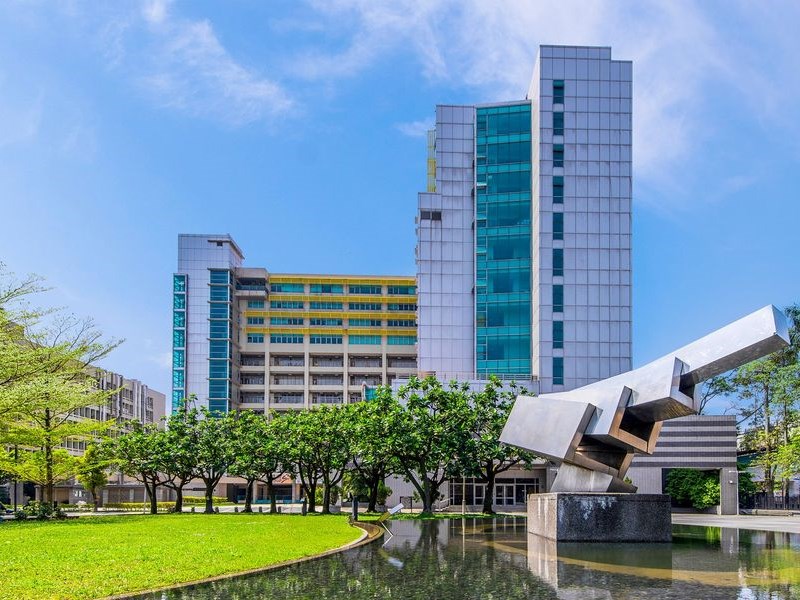
julialiu
16:26:32
My name is Julia, a program staff of COSCUP. This post is about Call for Speakers for COSCUP x RubyConfTW 2021.
C’mon, hurry up!👨💻👩💻🏻
📣COSCUP x RubyConfTW 2021: Call for Speakers Now Open!
(Conference for Open Source Coders, Users, and Promoters)
:point_right:Very simple:Send in a proposal with a title and a short description of your talk to https://blog.coscup.org/2021/04/coscup-2021-cfp.html
*How to become our Speaker*
Considering the impact of Covid-19, we provide different ways to participate in the keynote speaking:
1. Pre-Recorded Video, with Live QA.
2. Live-Remote Speaking. (Please submit Pre-recorded video for disconnection accident)
We believe your voice would be a critical addition to the COSCUP.
:round_pushpin:A little bit info regarding Civic Tech in Taiwan
:point_right: open source, open- government-rb.gy/mdbqwi
👉 How Taiwan fight COVID via Civic Technology -https://rb.gy/nptmom
Track Please visit here
https://blog.coscup.org/2021/04/coscup-2021-cfp.html
If you are interested in speaking, please submit your proposal no later than midnight on *May 10th, 2021*. Looking forward to hearing from you!
🔜* Application Link*
:spiral_calendar_pad:Save the date! COSCUP 2021 will be held this coming July 31& Aug 1 at National Taiwan University of Science and Technology in Taipei.
Please contact julialiu2223@gmail.com if you have any questions
Cheers
C’mon, hurry up!👨💻👩💻🏻
📣COSCUP x RubyConfTW 2021: Call for Speakers Now Open!
(Conference for Open Source Coders, Users, and Promoters)
:point_right:Very simple:Send in a proposal with a title and a short description of your talk to https://blog.coscup.org/2021/04/coscup-2021-cfp.html
*How to become our Speaker*
Considering the impact of Covid-19, we provide different ways to participate in the keynote speaking:
1. Pre-Recorded Video, with Live QA.
2. Live-Remote Speaking. (Please submit Pre-recorded video for disconnection accident)
We believe your voice would be a critical addition to the COSCUP.
:round_pushpin:A little bit info regarding Civic Tech in Taiwan
:point_right: open source, open- government-rb.gy/mdbqwi
👉 How Taiwan fight COVID via Civic Technology -https://rb.gy/nptmom
Track Please visit here
https://blog.coscup.org/2021/04/coscup-2021-cfp.html
If you are interested in speaking, please submit your proposal no later than midnight on *May 10th, 2021*. Looking forward to hearing from you!
🔜* Application Link*
:spiral_calendar_pad:Save the date! COSCUP 2021 will be held this coming July 31& Aug 1 at National Taiwan University of Science and Technology in Taipei.
Please contact julialiu2223@gmail.com if you have any questions
Cheers
blog.coscup.org
無論您是開放原始碼的開發者、推廣者、使用者,都歡迎您來參加 COSCUP「開源人年會」
digi.ey.gov.tw
The spread of the novel coronavirus and the resulting COVID-19 pandemic have provided a powerful test of social and governance systems. Neither of the world’s two leading powers, China and the United States, has been particularly distinguished in responding. In China, an initial bout of political denial allowed the virus to spread for weeks, first domestically and then globally, before a set of forceful measures proved reasonably effective. (The Chinese government also should have been better prepared, given that viruses have jumped from animal hosts to humans within its territory on multiple occasions in the past.) The United States underwent its own bout of political denial before adopting social-distancing policies; even now, its lack of investment in public health leaves it ill-equipped for this sort of emergency. The response of the bureaucratic and often technophobic European Union may prove even worse: Italy, although far from the epicenter of the outbreak, has four times the per capita rate of cases as China does, and even famously orderly Germany is already at half China’s rate. Nations in other parts of the world, such as information-manipulating Iran, provide worse examples yet. Focusing on the countries that have done worst, however, may be less useful at this point than considering which country has so far done best: Taiwan. Despite being treated by the World Health Organization as part of China, and despite having done far broader testing than the United States (meaning the true rate of infection is far less hidden), Taiwan has only one-fifth the rate of known cases in the United States and less than one-tenth the rate in widely praised Singapore. Infections could yet spike again, especially with the global spread making visitors from around the world vectors of the virus. Yet the story of Taiwan’s initial success is worth sharing not just because of its lessons for containing the present pandemic but also because of its broader lessons about navigating pressing challenges around technology and democracy. Taiwan’s success has rested on a fusion of technology, activism, and civic participation. A small but technologically cutting-edge democracy, living in the shadow of the superpower across the strait, Taiwan has in recent years developed one of the world’s most vibrant political cultures by making technology work to democracy’s advantage rather than detriment. This culture of civic technology has proved to be the country’s strongest immune response to the new coronavirus. TECH FOR DEMOCRACY The value of Taiwan’s tech-enabled civic culture has become abundantly clear in the current crisis. Bottom-up information sharing, public-private partnerships, “hacktivism” (activism through the building of quick-and-dirty but effective proofs of concept for online public services), and participatory collective action have been central to the country’s success in coordinating a consensual and transparent set of responses to the coronavirus. A recent report from the Stanford University School of Medicine documents 124 distinct interventions that Taiwan implemented with remarkable speed. Many of these interventions bubbled into the public sector through community initiatives, hackathons, and digital deliberation on the vTaiwan digital democracy platform, on which almost half the country’s population participates. (The platform enables large-scale hacktivism, civic deliberation, and scaling up of initiatives in an orderly and largely consensual manner.) A decentralized community of participants used tools such as Slack and HackMD to refine successful projects. (Much of our analysis is based on open interviews through these tools with leaders in the g0v community of civic hackers.) One of the most celebrated examples is the Face Mask Map, a collaboration initiated by an entrepreneur working with g0v. To prevent the panicked buying of facemasks, which hindered Taiwan’s response to SARS in 2003, the government instituted a national rationing scheme of two facemasks per week per citizen. Anticipating that this national policy would be insufficient to avoid local runs on pharmacies, the government (via its prestigious digital ministry) released an application programming interface (API) that provided real-time, location-specific data to the public on mask availability. Digital Minister Audrey Tang then proceeded to work closely with entrepreneurs and g0v hacktivists in a digital chatroom to rapidly produce a range of maps and applications. These tools showed where masks were available, but they did more than that. Citizens were able to reallocate rations through intertemporal trades and donations to those who most needed them, which helped prevent the rise of a black market. As often happens in the world of hacking, the initial deployment crashed after being overwhelmed by hundreds of thousands of queries in the first hours of operation, but the effort was not wasted. The broad interest stimulated the government to provide the necessary computational resources and bandwidth to allow a version of this service that could serve the whole population. The result has not just facilitated a more effective distribution of masks but also reduced panic and generated widespread, and justified, pride. A second example is a platform that helps citizens work together to reduce exposure to the virus. The work on this platform (which again grew out of a collaboration between a group of entrepreneurs, the digital ministry, and the g0v movement) was motivated in part by the arrival of passengers from a cruise ship with a high rate of infection. Individuals used the platform to share reports, voluntarily and in real time, about symptoms using a variety of media (such as a call-in line and smartphones); this information was quickly verified and collated. The result was then combined with more community-created apps that allowed users to download their smartphone location history to determine if they may have been exposed. It was a common-sense design that encouraged proactive behavior. Users who worried about exposure limited their subsequent interactions to protect others. The guiding principle was not top-down control but mutual respect and cooperation. Privacy was carefully protected, and the movements of an individual were not visible to others. This approach supported an astonishing degree of social coordination, which reduced transmission. And despite being an open, participatory system, the platform did not spur the spread of disinformation or panic. By ensuring reported histories of movement corresponded to plausible patterns, without recording their details, trolls were excluded, thereby avoiding the dysfunctions that degrade commercial social media in times of crisis. The availability of this information dramatically reduced the economic burden of achieving containment by avoiding uniform and extreme social-distancing policies. Instead, citizens were able to avoid or disinfect compromised locations; those who had visited them could self-quarantine. These are only two examples. Dozens of community-created apps helped reduce the intensity of government-enforced interventions and at the same time supported the world’s best response to the pandemic. They allowed Taiwan to avoid the lack of coordination and the misallocation of supplies and tests that have characterized the U.S. and European responses, as well as the secretive, hierarchical approach of centralized Chinese planning. By making the health-crisis response extremely transparent—Digital Minister Tang livestreams all her meetings—Taiwan built public confidence. By communicating challenges faced by the government, rather than projecting an aura of invincibility, it encouraged a range of decentralized actors to contribute to solutions and build on official information. And by tightly targeting responses to locations and types of activities that posed a threat, made visible by data from the community, it was able …
blog.coscup.org
無論您是開放原始碼的開發者、推廣者、使用者,都歡迎您來參加 COSCUP「開源人年會」
bess
2021-04-27 18:40:07
@mami.takesada @mee @kaizumaki @mayu3.181 @kouta.giants0706 @takagishunsuke1129 Hi guys, the biggest open-source conf at TW `COSCUP` is open for proposal, the deadline is midnight on *May 10th, 2021*, if you want to share something at Education Track, please consider to join. Maybe I will share something about Sch001 🙂
Mayumi Kamio
2021-04-28 20:00:28
@airinha.br.123 FYI !
julialiu
16:27:36
大家好,我是Julia,COSCUP議程組的組員。今天來這裡跟大家邀稿!
#各位別忘了 投稿COSCUP x RubyConfTW 2021 !!
🔥COSCUP,2021 議程徵稿🔥
📣你的稿子ㄋ!!!!!!!?
手刀搶【議程徵稿】給你公開說明書
https://blog.coscup.org/2021/04/coscup-2021-cfp.html
COSCUP (Conference for Open Source Coders, Users, and Promoters)
🗓️全台最大開源年會 COSCUP 將在:7 月 31 日至 8 月 1 日 於國立臺灣科技大學舉行。
今年共有磅礡的 22 軌徵稿,
樓上揪樓下、厝邊拉隔壁、阿公牽阿嬤、爸爸甲媽媽、兄姐帶弟妹,趕快來投稿
馬上 +1 投稿去!
🅳🅴🅰️🅳🅻🅸🅽🅴:2021/05/10(截止日期)
--徵稿題目如下---
https://blog.coscup.org/2021/04/coscup-2021-cfp.html
#各位別忘了 投稿COSCUP x RubyConfTW 2021 !!
🔥COSCUP,2021 議程徵稿🔥
📣你的稿子ㄋ!!!!!!!?
手刀搶【議程徵稿】給你公開說明書
https://blog.coscup.org/2021/04/coscup-2021-cfp.html
COSCUP (Conference for Open Source Coders, Users, and Promoters)
🗓️全台最大開源年會 COSCUP 將在:7 月 31 日至 8 月 1 日 於國立臺灣科技大學舉行。
今年共有磅礡的 22 軌徵稿,
樓上揪樓下、厝邊拉隔壁、阿公牽阿嬤、爸爸甲媽媽、兄姐帶弟妹,趕快來投稿
馬上 +1 投稿去!
🅳🅴🅰️🅳🅻🅸🅽🅴:2021/05/10(截止日期)
--徵稿題目如下---
https://blog.coscup.org/2021/04/coscup-2021-cfp.html
bess
2021-04-27 18:42:32
@yiting.lin @mengting @irvin @little78926 @liao.jason2 @yiting.lin 今年 COSCUP 也有教育軌喔歡迎投稿~~~
bess
2021-04-27 18:46:30
@wildjcrt ~
John Huang
2021-04-29 02:05:50
我目前沒有什麼頭緒,不過有興趣參加需要幫忙的可以找我組隊,
bess
2021-04-29 13:24:02
@little78926 時數系統?
John Huang
2021-04-29 13:40:03
喔喔~(可以請你投稿嗎)
bess
2021-04-29 13:42:51
@little78926 好~我有靈感的時候再開個共筆 XD
bess
2021-05-10 21:44:12
COSCUP 徵稿會在待會 12 點關門喔,還來得及投一下~
bess
18:40:07
Replied to a thread: 2021-04-27 16:26:32
@mami.takesada @mee @kaizumaki @mayu3.181 @kouta.giants0706 @takagishunsuke1129 Hi guys, the biggest open-source conf at TW `COSCUP` is open for proposal, the deadline is midnight on *May 10th, 2021*, if you want to share something at Education Track, please consider to join. Maybe I will share something about Sch001 🙂
- 👍1
- 🙌1
 1
1
bess
18:42:32
Replied to a thread: 2021-04-27 16:27:36
@yiting.lin @mengting @irvin @little78926 @liao.jason2 @yiting.lin 今年 COSCUP 也有教育軌喔歡迎投稿~~~
- 🤩4
bess
18:46:30
@wildjcrt ~
irvin
20:34:11
Irvin Chen
誠致教育基金會的方執行長因為健康的關係要退休了
https://tw.appledaily.com/headline/20210426/BTXKCFJI7VD4ZO2SUNX2YUT5VA/
- Forwarded from #rand0m
- 2021-04-27 00:44:54
2021-04-28
Luhmann
11:21:52
@kerim.mail has joined the channel
julialiu
13:19:03
你需要我幫忙翻譯嗎?
bess
13:20:07
@julialiu2223 太好了當然需要 XD 等我們把中文的部分搞定
bess
17:05:28
@felixtypingmonkey
Mayumi Kamio
20:00:28
@airinha.br.123 FYI !
Airi Yazawa
20:01:48
@airinha.br.123 has joined the channel
julialiu
22:11:19
恩恩可以tag我噢!不用客氣,因為我幾乎沒看到這串哈哈
2021-04-29
John Huang
02:05:50
我目前沒有什麼頭緒,不過有興趣參加需要幫忙的可以找我組隊,
bess
13:24:02
@little78926 時數系統?
John Huang
13:40:03
喔喔~(可以請你投稿嗎)
bess
13:42:51
@little78926 好~我有靈感的時候再開個共筆 XD
bess
19:36:57
@besslee set the channel topic: 下次活動:5/8 沒有人與他們的產地 Live Podcast ep.00 ft. ronnywang https://g0v.hackmd.io/@jothon/wheretofindnobody/ | 網站 https://sch001.g0v.tw/ 臉書社團 https://www.facebook.com/groups/jothon.sch001/ | 零時小學校(Sch001)是聚焦在教育的 g0v 專案。
bess
19:39:42
「沒有人」在成為沒有人之前,他們都是帶著什麼想法進入社群的呢?他們該不會都是很會寫程式的工程師吧?我如果不會寫程式,到底要怎麼成為沒有人呢?
零時小學校在 2021 年推出「沒有人與他們的產地」Live Podcast,讓你在課後時間加入一個只需要說話,不需要寫程式的線上對談,從零開始理解 g0v 這個充滿沒有人的社群。
歡迎你一起來說話,因為「不要問為什麼沒有人做這個,先承認你就是沒有人。」
👉 歡迎提問或登記分享 https://g0v.hackmd.io/@jothon/wheretofindnobody210508
【EP00 來賓:g0v 小幫手大神 ronnywang】
【主持人:t-monk】
【流程 Rundown】
• 時間:2021.05.08 Sat. 20:00-21:00
• 地點:Facebook or Youtube 直播 | `在 5/6(四)前登記開放分享的人會得到 jitsi 線上會議室網址`
• 流程:
◦ 主講人分享 8 mins
◦ 開放提問回答 10-15 mins
◦ 開放分享每人 3 mins
◦ 自由聊天到結束為止
零時小學校在 2021 年推出「沒有人與他們的產地」Live Podcast,讓你在課後時間加入一個只需要說話,不需要寫程式的線上對談,從零開始理解 g0v 這個充滿沒有人的社群。
歡迎你一起來說話,因為「不要問為什麼沒有人做這個,先承認你就是沒有人。」
👉 歡迎提問或登記分享 https://g0v.hackmd.io/@jothon/wheretofindnobody210508
【EP00 來賓:g0v 小幫手大神 ronnywang】
【主持人:t-monk】
【流程 Rundown】
• 時間:2021.05.08 Sat. 20:00-21:00
• 地點:Facebook or Youtube 直播 | `在 5/6(四)前登記開放分享的人會得到 jitsi 線上會議室網址`
• 流程:
◦ 主講人分享 8 mins
◦ 開放提問回答 10-15 mins
◦ 開放分享每人 3 mins
◦ 自由聊天到結束為止
HackMD
零時小學校在 2021 年推出「沒有人與他們的產地」Live Podcast,讓你在課後時間加入一個只需要說話,不需要寫程式的線上對談,從零開始理解 g0v 這個充滿沒有人的社群。
2021-04-30
Allen
07:06:04
丟在這邊宣傳一下
維基媒體協會與成大歷史系共同推出 Wikidata 微學分
歡迎大家可以選修~
http://his.ncku.edu.tw/p/406-1190-220982,r3069.php?Lang=zh-tw
維基媒體協會與成大歷史系共同推出 Wikidata 微學分
歡迎大家可以選修~
http://his.ncku.edu.tw/p/406-1190-220982,r3069.php?Lang=zh-tw
 3
3- 👍2
Leo
11:03:32
@leoannie9v has joined the channel

